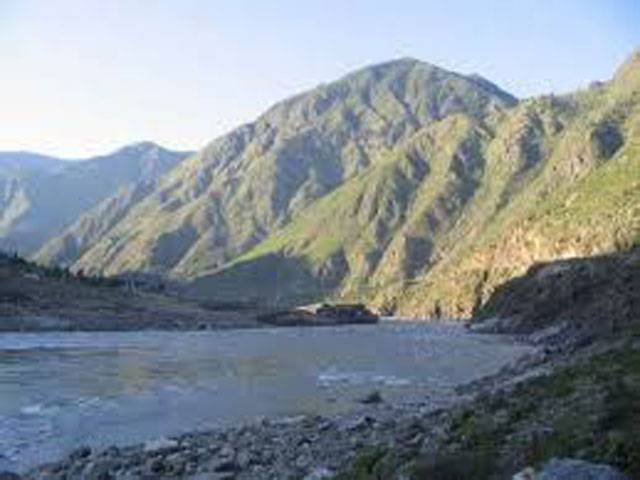Islamabad - Urging Pakistan and India to solve water issues through ‘hydro-diplomacy’ and in accordance with Indus Waters Treaty, former diplomats and water experts enunciated the fear of war between the two countries if matters pertaining to water sharing of mutual rivers were not resolved placidly.
The diplomats and experts were speaking at launching ceremony of a book, Hydro-Diplomacy: Preventing water war between nuclear-armed Pakistan and India, authored by Ashfaq Mahmood, former federal secretary, Water and Power, and published by IPS Press – the publishing arm of the Institute of Policy Studies (IPS), Islamabad.
The ceremony was addressed by Sardar Masood Khan, president, Azad Jammu and Kashmir, as chief guest whereas other speakers included Ambassador (R) Shafqat Kakakhel, Mirza Hamid Hasan, former secretary, Water and Power and chairman of IPS’ steering committee on Water, Energy and Climate Change, DG-IPS Khalid Rahman and the author Ashfaq Mahmood.
Speaking of the gravity of the water situation, the AJK president said that the Indian violations were hurting Pakistan in terms of water quality, water depletion, food security and climate change, and the scale of this damage could be envisaged through the fact that per capita water in the country had dropped from 2,172 cm to 1,306 cm between 1990 and 2015, an estimate that is authenticated by international bodies such as World Resource Institute and UNDP.
Highlighting the importance of commitment, knowledge-based approach, third-party mediation and strengthening of institutions needed to resolve issues, Khan stressed that Pakistan should be smart enough to know Indian tactics of delay – such as presenting Pakistan-India tensions as a smokescreen to complete its hydropower projects, including Baglihar, Wullar Barrage and Kishanganga dam – at a faster pace.
He also underscored the need for preparing a comprehensive water policy having an external domain encompassing India and other neighbours, as well as internal domain stressing on water conservation, building of dams, investment in environment and the strategies to deal with the challenges of climate change.
Elaborating the recent controversies regarding Pakistan’s concerns over Indian run-of-the-river projects, the author said that as per the Indus Water Treaty, India was not supposed to interface, control or affect the flow of water towards Pakistan. There have however been violations in nearly all relevant Indian dam designs which were set to have severe repercussion on Pakistan waters, food and climate.
The information about the dam designs was conveyed belatedly and inadequately to Pakistan, which was followed by wasting of more time in correspondence. When eventually Pakistan objects to the violations, statements started being made by the Indian side igniting sentiments, hiding facts and trying to manoeuvre the situation in their favour. By enlightening the public, academia, intelligentsia, civil society and other stakeholders over the matter, the author hoped that solid and effective steps would be taken by authorities to carefully and proactively move towards resolution of this sensitive issue which can otherwise lead to disastrous consequences not only for India and Pakistan, but for the whole region.
Shafqat Kakakhel highlighted important points raised by the author in the book such as the cascade of projects launched by Indian side on the river Chenab and Jhelum, the deteriorating quality of water flowing into Pakistan due to these projects, the alarming reduction of quantity of water flowing into Pakistan, and other important water management issues that were being faced by Pakistan due to Indian non-compliance with the Indus Water Treaty. He stressed the need to retain rational heads in the situation, albeit not take the threats from Indian leadership – especially Narendra Modi and his cabinet – lightly, while urging to work towards countering negative tactics from the Indian side.
Mirza Hamid Hasan hailed timely publication of the book and said that the issue that this book dealt with had already reached alarming levels. He mentioned that the Indus Water Treaty was signed in an environment where Pakistan needed to ensure food security, but with the passage of time, shortcomings of the treaty regarding emerging issues such as environment, increase of population and non-resolution of Kashmir dispute, became quite evident. He praised the flurry of issues covered by the author in the book including equitable water distribution, ingredients of water war, post Indus Water Treaty issues etc. He said that the best way forward to resolve the issue was to ensure that the Indus Water Treaty was kept alive but reviewed and made more effective in addressing the current issues by including addendums to it.






